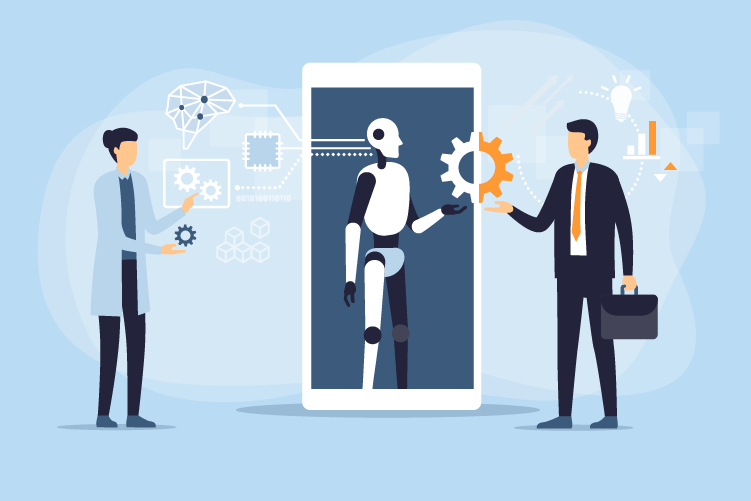No matter what sector they are in, companies all around the world are finding a use for artificial intelligence (AI) and automation. In fact, a 2021 survey by McKinsey found that 56 percent of respondents had adopted AI for at least one function of their business.
One way all companies can use the advanced data analysis, collection and automation made possible by AI is with the simple adoption of AI-enabled, cloud-based technology in their accounting departments.
What is artificial intelligence?
AI is a way of leveraging technology to review, analyze, and learn data. More complex than a simple spreadsheet, AI can be programmed to learn and execute rules. AI can parse and analyze far greater volumes of data than humans can, and does so in very short periods of time—often using this data to make split-second decisions.
Automation stems from the AI’s ability to learn from the data it collects. By giving the AI a set of rules to follow and actions to take, the user can assign ongoing tasks to the AI with little ongoing human oversight or involvement.
Let’s look at a few ways adopting AI and automation can help your accounting processes.
Improving regulatory compliance
Compliance is an intricate and vital part of all business accounting procedure. When utilizing AI in your accounting system, you automate many compliance-required duties, ultimately reducing the risk of errors. In some cases, AI may even be used to trigger notifications to let your staff know when they are at risk of violating a regulation, such as identifying noncompliant purchases or out-of-date payroll information.

Saving time
It’s obvious that automating tasks can save your employees time, but how much? According to Accenture, as much as 80 percent of accounting duties can be automated. Firms like Deloitte have credited the adoption of AI for halving the amount of time its staff spends on certain tasks. Whether AI is used to free accountants from tedious routine duties or to take over billing, auditing and tax reporting, the time saved can be redirected to more nuanced projects that require human experience and intuition.
Simplifying audits and oversight
Speaking of audits, AI is a tremendous tool for accountants who want to reduce fraud and facilitate better oversight of their business. Some firms have found that the audit tools provided by AI not only identify instances of fraud that would normally be buried in mounds of data, but can also help them collect the evidence necessary to pursue legal action.
There will likely always be roles that require human intervention. But for your firm to embrace the future that is already now, it’s important to prioritize so that you can make the best use of your human workforce. At a time when accounting firms are already finding it difficult to justify charging for data entry, it’s a good idea to start leveraging the power of AI and automation before you get left behind.
Related articles
Family Office Trends in 2022 and Beyond: What’s new in Technology and IT?
RPA, a Smart Robot that Saved One Family Office Time and Frustration







